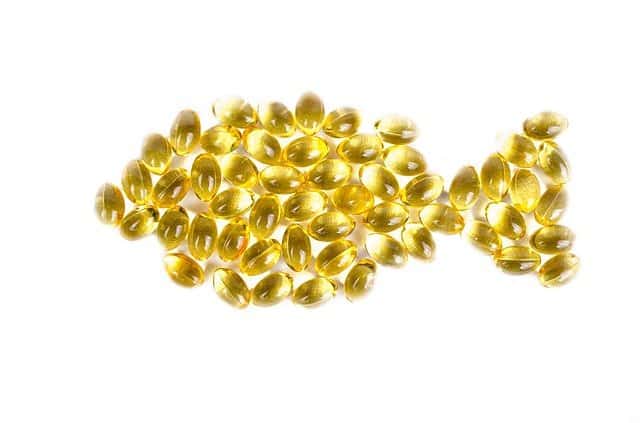
Diseases of the cardiovascular system are quite common in dogs, especially in older dogs and small breeds.
Among the conditions of the cardiovascular system of dogs, congestive heart failure (ICC) stands out. This condition is a consequence of the heart’s inability to properly pump blood through the rest of the body. Did you know that the properties of cod liver oil are many and make it a precious ally for the health of dogs?
In the ICC, the blood essentially “backs off” into the circulatory system, causing fluid to escape from the vessels. As fluids accumulate, a progressive obstruction of the lungs and heart ensues. When the breathing process is hampered , blood oxygenation decreases.
At this point your dog will be breathing hard and quickly to get enough air. Additionally, a dog with fluid in their lungs may not be able to move properly, have a persistent cough and appear weak. Let’s see together the properties of cod liver oil to improve this condition.
Congestive heart failure is more of a condition than a disease and occurs during the terminal stages of severe heart disease.
Benefits and properties of cod liver oil for dog health
Diseases of the cardiovascular system in dogs
Heart disease, in general, includes several diseases that are fairly common in dogs . We will begin by pointing out the three most common cardiac anomalies:
- Chronic valve disease . It is by far the most common heart abnormality in dogs. The appearance and severity of this condition increases with age. Therefore, older small breed dogs are more likely to develop mitral valve disease. Male dogs are also known to have slightly higher odds than females.
- The dilated cardiomyopathy (DCM) presents the weakening of the heart muscle, which pumps with less force and regularity. This condition is more common in large breed dogs, such as Great Dane and some spaniel breeds.
- Pericardial effusion . It occurs when fluid accumulates in the sac around the heart. This is another common canine heart condition. It mostly affects older dogs.
In the long run, mitral valve disease, DCM, and pericardial effusion can cause CHF.
Role of diet in diseases of the cardiovascular system of dogs
The details of treatment for CHF depend on two factors: the primary type of heart disease involved and how advanced the condition is. However, it is worth noting that diet plays an important role.
Dogs with CHF tend to lose weight . In particular, they can fall into a process called cachexia, during which muscle and fat stores are depleted.
The cachexia usually has several causes, including a lack of appetite, poor absorption of food and the effects of drugs taken by many dogs with ICC. Therefore, the first thing to do is to find a diet aimed at helping a dog with ICC to have an appetite.
In fact, if a dog doesn’t like to eat, he is unlikely to eat enough to avoid cachexia.
Although people don’t like the taste of cod liver oil, dogs love it.
What are the important nutrients in the diet of dogs with heart disease?
There are many nutrients that are considered important in diets focused on improving the cardiovascular system of dogs. The main ones are: limited sodium, taurine, L-carnitine, fatty acids and antioxidants.
Omega 3 fatty acids
Omega 3 is just one type of essential fatty acid (AGE). They are called essential because they cannot be synthesized in the body and must be obtained through the diet. Dogs and cats need different types of omega oils, including 6 and 3.
Omega 3 fatty acids are recommended for heart disease for several reasons. First, they reduce inflammatory proteins called cytokines. Additionally, a diet supplemented with omega 3 fatty acids has been shown to improve appetite and reduce muscle loss in dogs with heart failure. Other studies have shown that omega 3 fatty acids suppress abnormal heart rhythms (antiarrhythmic effect).
The best sources of omega 3 fatty acids are fish oil, seaweed and shellfish such as mussels . Salmon oil is usually the preferred source of fatty acids over cod liver oil.
Antioxidants
Free radicals are responsible for cell metabolism and the aging process. When free radicals are produced in excess, they can also cause disease and ailments.
Antioxidants, including vitamins C and E, help neutralize free radicals and thereby reduce the damage they cause.
Dogs with dilated cardiomyopathy or mitral valve disease are known to have an excess of free radicals. Therefore, it is recommended that antioxidants such as vitamins C and E be included in the diet of a dog with heart disease .
However, it is important to note that excess vitamins that accumulate in the liver can be counterproductive. Therefore, the dosage of any supplement must be strictly monitored by the veterinarian.
Properties of cod liver oil
Cod liver oil is the most concentrated source of vitamin A in food in the world. Each gram contains 1000 units of vitamin A, which is equivalent to more than four times the vitamin A in beef liver, the second most concentrated natural source.
Other properties of cod liver oil are essential fatty acids such as Omega 3 . Furthermore, Omega 3 fatty acids reduce the production of cytosine. Cod liver oil is also capable of increasing appetite and helping to minimize body mass loss in animals with heart failure.
The first step in determining the ideal diet for a dog with heart failure is to visit the vet to determine other medical conditions present.
Omega 3 fatty acids appear to have many potential benefits in dogs with heart disease. When administered, doctors must be careful to provide specific recommendations for owners. In fact, more research will be needed to determine the right doses and intake directions for dogs with heart disease.






